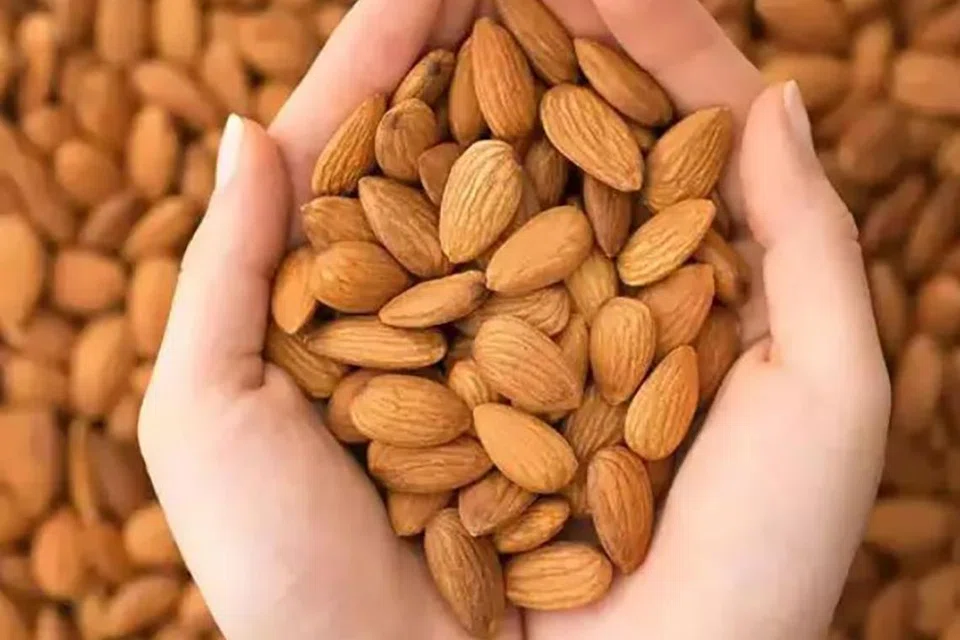Eating almonds regularly may help you recover from exercise by reducing muscle fatigue and soreness, a new study has found.
The findings, published in the journal Current Developments in Nutrition, could promote greater adherence to physical training, a topic that warrants further investigation in future studies, researchers noted.
The research team, which included scientists from San Diego State University in the United States, studied 26 middle-aged adults who exercised one to four hours a week.
For eight weeks, participants consumed either 60g of whole raw almonds or about 90g of unsalted pretzels daily. After eight weeks, they underwent a 30-minute downhill treadmill run to induce muscle damage, immediately consuming their daily serving of almonds or pretzels afterwards.
The researchers measured perceived muscle soreness, muscle performance (through a muscle contraction test and vertical jump) and blood markers of muscle damage and inflammation, such as C-reactive proteins and creatine kinase.
Measurements were taken before the treadmill run and at 24, 48, and 72 hours afterwards, during which participants continued their daily intake of almonds or pretzels.
During the recovery period – up to 72 hours after the treadmill run – the group consuming almonds showed lower levels of creatine kinase, indicating less muscle damage.
Additionally, the almond group demonstrated better muscle performance at both 24 and 72 hours following the treadmill run.
Pain levels in participants who ate almonds were found to be about 37 per cent and 33 per cent lower at 24 and 48 hours, respectively, compared with those consuming pretzels.
“This study demonstrates that 2.0 ounces per day of almonds modestly reduces pain, better maintains muscle strength and reduces the (creatine kinase) response to eccentric-based exercise,” the authors wrote.
The results add to the growing body of evidence regarding almonds’ role in post-exercise recovery, they said.
“Almonds contain a wide range of nutrients known to support exercise recovery, including protein, antioxidants and phytonutrients,” said Mark Kern, a professor of exercise and nutritional sciences at San Diego State University.
These nutrients are provided in a whole food package, as opposed to isolated vitamin supplements, which may explain the benefits observed in this study.”

